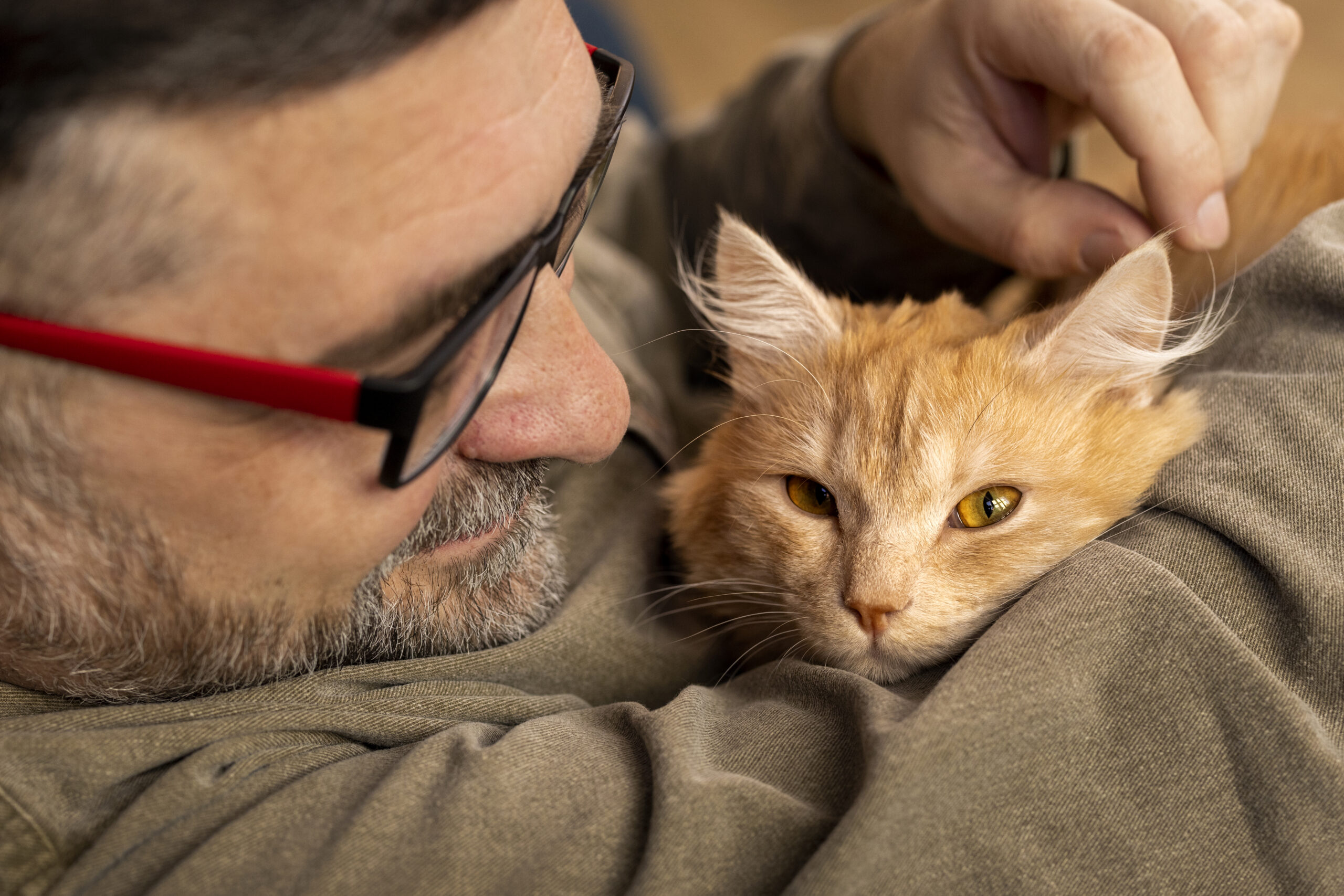Cats are known for their independent and calming nature, but can they be more than just beloved pets? The question many people ask is: “Can a cat be an emotional support animal?” The answer is yes, and the benefits of having a cat as an emotional support animal (ESA) are significant. From providing stress relief to companionship, cats have unique qualities that make them ideal for emotional support. In this post, we’ll explore how cats can qualify as emotional support animals, the process for certification, and the ways they can bring comfort and stability to your life.
1. What Is an Emotional Support Animal (ESA)?
An emotional support animal (ESA) is a companion animal that provides emotional and psychological comfort to its owner. Unlike service animals, which are trained to perform specific tasks for people with disabilities, ESAs do not require specialized training. Their main role is to offer comfort through their presence. Cats, with their gentle nature and intuitive behavior, can be perfect for this role.

2. Can a Cat Be an Emotional Support Animal?
Yes, cats can absolutely be emotional support animals. While dogs are more commonly associated with emotional support, cats are equally capable of providing the comfort and emotional stability that people need. Cats have a unique ability to sense their owner's emotional state and respond in a calming manner. Their soothing purrs, warm presence, and affectionate behavior can help reduce anxiety, alleviate depression, and provide a sense of companionship.
3. Benefits of Having an Emotional Support Cat
Having a cat as an emotional support animal comes with numerous benefits:
- Stress Relief: The act of petting a cat has been shown to lower cortisol levels, reducing stress.
- Calming Presence: The sound of a cat’s purr is not only soothing but has been linked to lowering blood pressure and promoting relaxation.
- Companionship: Cats provide comfort through their presence, which can be especially beneficial for those living alone or experiencing loneliness.
- Routine and Responsibility: Caring for a cat can create a sense of purpose and routine, which is beneficial for individuals struggling with mental health challenges.

4. Certification Process for Emotional Support Cats
While emotional support cats don’t require specialized training, having them recognized as an ESA involves obtaining an ESA letter from a licensed mental health professional. Here’s how the process typically works:
- Consult with a Licensed Therapist: Discuss your mental health needs with a licensed therapist or psychologist to determine if an ESA is right for you.
- Obtain an ESA Letter: If approved, the professional will provide a letter that certifies your need for an emotional support animal.
- Keep the Letter Accessible: This letter is essential for situations where proof of your cat’s ESA status is needed, such as housing or travel accommodations.

5. Differences Between Emotional Support Cats and Service Animals
It’s important to understand that emotional support cats are not the same as service animals. Service animals, often dogs, are trained to perform specific tasks to assist with physical disabilities, such as guiding the visually impaired or detecting seizures. Emotional support cats, on the other hand, provide comfort through companionship without specialized training. This distinction is key in understanding their rights and the types of accommodations they are eligible for.
6. Can Cats Be Service Animals?
Cats cannot be recognized as service animals under current laws. Service animals are specifically defined as dogs (and in some cases, miniature horses) that are trained to perform tasks related to a disability. However, cats excel as ESAs and can be a valuable part of mental health care for those needing emotional support.
7. How to Care for Your Emotional Support Cat
Caring for an emotional support cat is crucial to maintaining their well-being and ensuring they can provide the comfort you need. Here are some tips:
- Create a Comfortable Environment: Ensure your cat has a cozy space to rest and feel secure.
- Regular Vet Visits: Keep up with regular vet appointments to ensure your cat is healthy.
- Interactive Playtime: Engage in playtime to stimulate your cat’s mind and strengthen your bond.
- Balanced Diet: Provide nutritious food to keep your cat in good health.
Conclusion
Cats can be wonderful emotional support animals, offering comfort, companionship, and stress relief through their natural behaviors. While they may not be service animals, their unique ability to sense and respond to their owner's emotional needs makes them ideal for emotional support. If you’re considering an emotional support cat, understanding the benefits, certification process, and care tips can help you make the most of this rewarding experience.

